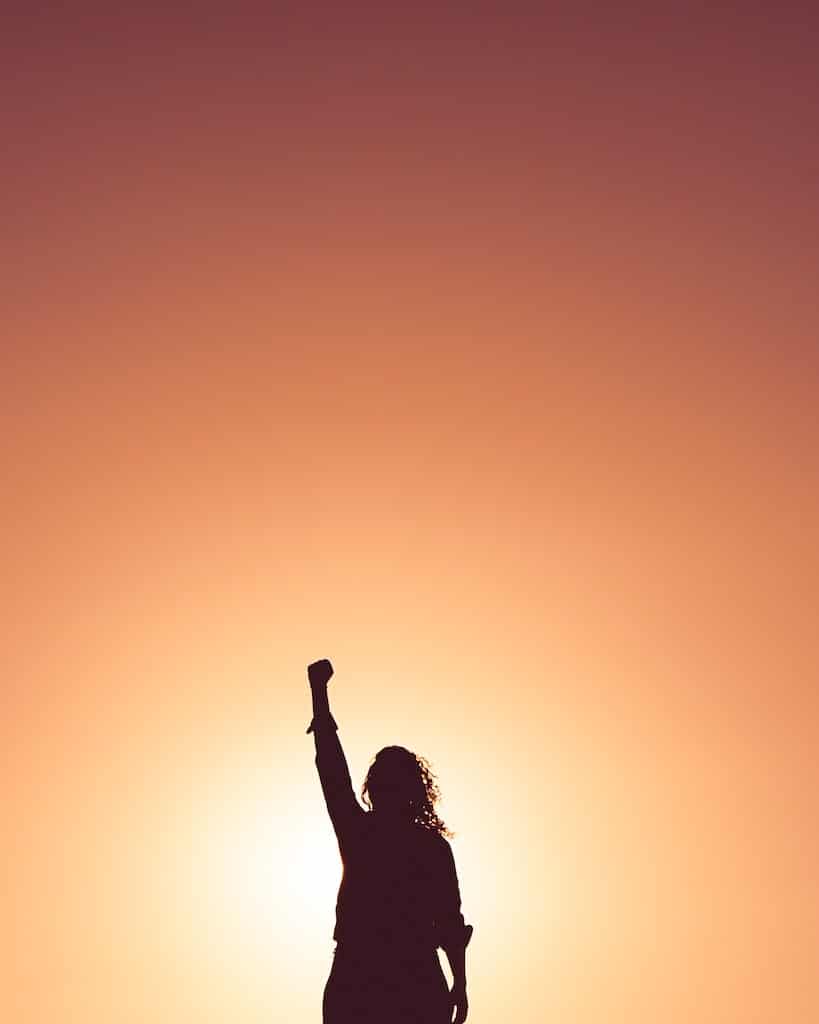He Raised his Fist
Like many people studying Zen I regularly read Buddhist texts and I read to realize my experience. I identify as a woman and so in reading I have to make a mental adjustment because of the consistent use of the pronoun “he”. I’ve tried different tactics: thinking of it as an inclusive term, ignoring it, even adding an ‘s’ before the ‘he’ to feel what it would be like to experience being spoken to or about. That pen mark mainly served to highlight the fact that, as a woman, these texts are not directed to me. But, over time, I’ve realized that highlighting that fact is a very good thing. Truth is important.
I thought of this more during our last sesshin when Genko spoke. Because Genko is a woman in a field where, as she mentioned, there aren’t many women, I was curious if some of the feelings I struggle with would be addressed. And they were. She spoke in depth about gender and the issues involved.
Genko also pulled the only section in the telling of the Vimalakirti Sutra where a woman teaches a lesson. Well, kind of a woman – a goddess. If there is a woman who offers a lesson in Buddhist texts she will generally be a goddess or an old woman, and usually nameless.
Does that matter?
I have been teaching acting for the past ten years and I am aware that if I have ten men and ten women in a class it will be the men will who speak louder, they will have more ideas, be more daring in their choices, raise their hand at the outset, find humour more easily, disrupt more readily, be more willing to open up when challenged … etc. etc. I understand the situation. It’s everywhere including Buddhism.
Only a few days ago I read the words I’ve come across so many times in Zen literature, “he raised his fist”. But this time I realized that raising the fist has a feeling behind it that I can feel. How many times have I read that statement and never once experienced the feeling of raising my fist. It never occurred to me. It was someone else’s experience. I have been completely ignorant of that experience. How many other things have I not learned over the years? I don’t know what I don’t know.
Buddhism talks about equality but it deeply transmits inequality. Even when a goddess exchanges bodies to prove the point that men and women are equal, the text teaches inequality: if you are a woman reading the text, you are not named, seen, spoken to, or the subject of the story. The story wasn’t written for a woman. It was a lesson for him, and for him only. The goddess in the Vimalakirti Sutra may well have been a worm for all it meant to me. Apparently men can exchange bodies with worms, dinosaurs, donkeys or goddesses. The man is the center and there is no way around the inequality of that. God is male.
This all sounds critical, bad and hopeless but this story does have a happy ending.
I can read Buddhist texts. The path is open to everyone. As long as I see the hidden lessons, I can work with it. It’s imperative that I realize when an interaction is telling me that I am equal but is actively teaching me that I am not. I have to see it. I have to keep my eyes open or I will fall back into the trap of learning inequality. And if I continue to learn inequality, I will continue to find it harder to speak louder, to express my ideas, to be daring in my choices, raise my hand at the outset, find the humour, open up when challenged…. etc. etc. etc.
Michelle Meyrink joins the PSZC by Zoom from British Columbia





